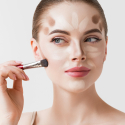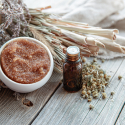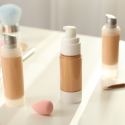- Europa
-
- Amstetten(7)
- Bad Schallerbach(1)
- Baden(4)
- Berg(1)
- Braunau am Inn(5)
- Bregenz(3)
- Bruck an der Mur(1)
- Graz(4)
- Hartberg(1)
- Innsbruck(5)
- Kemmelbach(1)
- Kitzbühel(4)
- Klagenfurt(5)
- Krems an der Donau(1)
- Kufstein(5)
- Leibnitz(1)
- Lienz(1)
- Liezen(1)
- Linz(5)
- Oetz(1)
- Punitz(1)
- Radstadt(1)
- Salzburg(5)
- St Polten(2)
- Steiermark(1)
- Steyr(1)
- Steyregg (1)
- Traun(3)
- Vienna(26)
- Villach(5)
- Völkermarkt(1)
- Wels(5)
- Wien(1)
- Wiener Neustadt(4)
-
- Aalst(1)
- Aarschot(2)
- Affligem(1)
- Anderlecht(5)
- Antwerp(11)
- Antwerpen(1)
- Arlon(6)
- Ath(2)
- Aubange(5)
- Bastogne (2)
- Blankenberge (1)
- Bruges(5)
- Brussels(15)
- Charleroi(5)
- Deinze(3)
- Dendermonde(1)
- Diest(2)
- Etterbeek(5)
- Geel(1)
- Genk(5)
- Gent(6)
- Geraardsbergen(1)
- Grimbergen (2)
- Hasselt(5)
- Heusden- Zolder(2)
- Ieper(1)
- Izegem(1)
- Knokke(4)
- Kortrijk(2)
- La Louviere(2)
- Leuven(5)
- Liege(4)
- Limburg(4)
- Lommel(1)
- Mortsel(1)
- Oostende(1)
- Turnhout(1)
-
- Chelyabinsk(1)
- Dubna(4)
- Gelendzhik(1)
- Irkutsk(1)
- Kaliningrad(1)
- Kazan(4)
- Krasnodar(3)
- Krasnoyarsk(1)
- Maykop(1)
- Moscow(50)
- Nizhny Novgorod(4)
- Novosibirsk(1)
- Omsk(1)
- Penza(1)
- Rostov-on-Don(2)
- Saint Petersburg(13)
- Samara(1)
- Saratov(1)
- Serpukhov (2)
- Sevastopol(3)
- Sochi(5)
- Stavropol(1)
- Surgut(1)
- Tyumen(2)
- Ufa(2)
- Vladivostok(3)
- Yekaterinburg (11)
-
- Alicante(8)
- Barcelona(113)
- Benalmadena(1)
- Benidorm(7)
- Castellón de la Plana(1)
- Denia(1)
- Estepona(1)
- Fuengirola (3)
- Ibiza(49)
- Jerez de la Frontera(1)
- Lanzarote(1)
- Las Palmas de Gran Canaria(5)
- Madrid(57)
- Malaga(9)
- Marbella(48)
- Murcia(1)
- Oviedo(1)
- Palma de Mallorca(48)
- Puerto Banus(3)
- Seville(1)
- Tarragona(1)
- Tenerife(7)
- Torrevieja(3)
- Valencia(9)
- Vigo(1)
- Zaragoza(1)
- Worldwide
How to Manage Oily Hair: Tips for Maintaining Fresh-Looking Locks
 Oily hair can be frustrating to deal with, especially when it seems like no matter what you do, your locks get greasy by the end of the day. This problem is primarily caused by the overproduction of sebum, a natural oil produced by the scalp to keep your hair moisturized. However, when your scalp produces too much sebum, it can make your hair look greasy and unclean.
Oily hair can be frustrating to deal with, especially when it seems like no matter what you do, your locks get greasy by the end of the day. This problem is primarily caused by the overproduction of sebum, a natural oil produced by the scalp to keep your hair moisturized. However, when your scalp produces too much sebum, it can make your hair look greasy and unclean.Common Mistakes That Worsen Oily Hair
Several habits and practices can unintentionally contribute to the issue of oily hair. Being aware of these can help you manage the problem more effectively.
Overwashing Your Hair
The Cycle of Overwashing: Many people believe that washing their hair more frequently will reduce oiliness. In reality, this can strip the scalp of its natural oils, causing it to produce even more sebum as a protective measure.
Reduce Frequency Gradually: Instead of washing your hair daily, try to extend the time between washes to every other day or every few days, allowing your scalp to regulate its oil production.
Using the Wrong Products
Avoid Heavy Conditioners: Conditioners that are too rich or heavy can weigh down your hair and make it appear greasier faster. Opt for lightweight, oil-free formulas that won’t contribute to the problem.
Stay Away from Silicone-Based Products: Silicone-based hair products can build up on the hair shaft, trapping oil and making your hair look greasy. Choose products labeled as “silicone-free” to avoid this issue.
Effective Tips for Managing Oily Hair
To combat oily hair, it’s essential to adopt a hair care routine that targets the root cause while keeping your locks fresh and clean.
Use a Clarifying Shampoo
Deep Cleanse Once a Week: Incorporate a clarifying shampoo into your routine once a week to remove buildup from styling products and excess oil. This will give your hair a deep cleanse without stripping it of essential moisture.
Choose a Sulfate-Free Option: While clarifying shampoos are effective, those containing harsh sulfates can dry out your scalp and exacerbate oil production. Opt for sulfate-free clarifying shampoos for a gentler cleanse.
Incorporate Dry Shampoo
Extend Time Between Washes: Dry shampoo is a lifesaver for oily hair, as it absorbs excess oil and refreshes your hair without the need for water. Use it on non-wash days to keep your hair looking fresh.
Apply Strategically: Focus on applying dry shampoo to the roots and areas that tend to get oily quickly. Be sure to brush it out thoroughly to avoid any visible residue.
Lifestyle Changes to Support Healthier Hair
In addition to adjusting your hair care routine, making a few lifestyle changes can also help manage oily hair.
Diet and Nutrition
Balance Your Diet: What you eat can affect the health of your hair. Incorporating more fruits, vegetables, and lean proteins into your diet can help regulate oil production.
Stay Hydrated: Drinking plenty of water helps maintain a healthy scalp and hair. Proper hydration can also prevent your body from overcompensating by producing excess oil.
Avoid Touching Your Hair Frequently
Hands Off: Touching your hair throughout the day can transfer oils and dirt from your hands to your hair, making it greasy. Try to avoid running your fingers through your hair too often.
Use Accessories Sparingly: While hair accessories can be stylish, using them too frequently can cause oil buildup where they make contact with your scalp. Opt for loose hairstyles that allow your hair to breathe.









